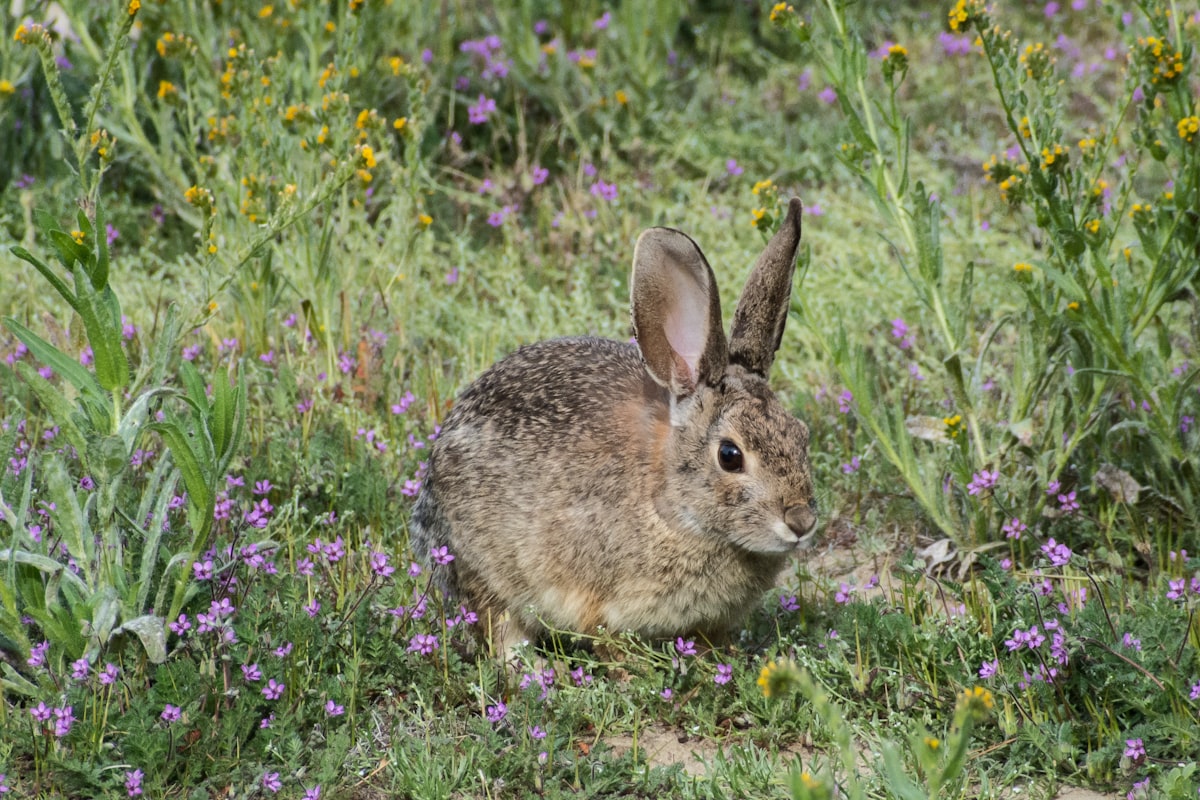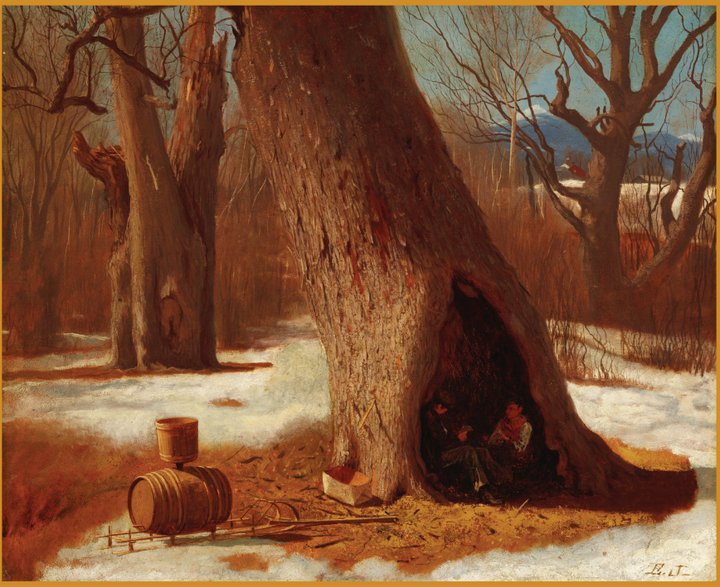Ode to the Desert Cottontail
Of all the animals in the Mojave Desert, the desert cottontail is among the more overlooked.

by Inbal Gilboa
Of all the animals in the Mojave Desert, the desert cottontail is among the more overlooked. Not the most overlooked by far, no, there are insects and birds and fish, odd spiders and rarely-seen crustaceans, but the cottontail is unique in that it is so very easy to see. And why not overlook it? It is in gardens and backyards, lounging in the shade of restaurants in Scottsdale, it mows golf courses and gets run over by trucks. It is a small and silly animal. It does not have the bewildering, mad-prophetic eyes of an Antelope jackrabbit, not the shy-turning-flight-turning-fight tempestuousness of a javelina. It does not travel in cooing flocks like the black-masked gambel's quail, it does not pierce you with the equivocating stare of an unreadable Coues deer, the strange innocence of a mule deer. It does not live as unseen as a bobcat, deciding exactly when and how you shall see it, it does not move silently overhead like a fluttering bat, that you would only notice if you chance to look up. Look up! See those flutters around the streetlamps? Bats!
It does not depend on massive colonies, like prairie dogs, its language is simple and brutal. It does not have the clean, neat song of a cardinal, it is not smart like a crow. It is not a coyote pack crossing a roadway at night, first one and then two and then two more, a silent comradery in a language that you do not understand. It is not a turkey vulture, wheeling overhead as everlasting as the tides -- I will outlive you, I will strip the meat from your bones when you are gone and through me you shall live forever -- it is not a hummingbird, which lives so quickly and fearless that is gone from this earth ere one can say, “it hums.”
It is not a blonde tarantula, which will live ten years, fifteen years, twenty years, thirty years. It is not a Sonoran Desert tortoise, which will live forty years, sixty years, a hundred years. It is not the Gila monster, fearsome Gila monster, gentle Gila monster, who sleeps underground as beautiful and peaceful as a decorated knife in a sheathe. No, it is not a venomous diamondback, it does not slip on the sand as gracefully as a ship on water, it does not hold its young so tenderly as a mother snake. It is not the fearless ground squirrel, warlike ground squirrel, that leaps onto the back of bullsnakes and bites at the heads of rattlesnakes to protect its den. It is not as romantic as the courting roadrunner, who comes to its mate bearing gifts of beaten lizards. It does not pair bond, though it does pair.
Food for almost everything. What wouldn’t eat you, desert cottontail? What won’t catch you. What won’t see you. Your young are born helpless, in a depression in the earth only an inch deep, and carried from there to a borrowed den that you did not dig for them, but appropriated from another animal who left it abandoned. What an act of bravery, then, to give birth to live young. What an act of love, to nurse them even through they will be adults in three months’ time. What an act of sheer desire to live, that most of them will not live to reproduce. Still - still. A cottontail mother purrs as it nurses. Rabbits do not purr like cats do, but through
grinding their teeth together to make a kind sound. I believe that kind sound is prayer. What do you pray to, cottontail? Who listens to you when you hide from the hawk?
It is not rare, the cottontail. It is born every day. It dies every day. So frequently and without notice that it may as well be one and the same.
And yet, here it is. Sylvilagus auduboni. Here it is, indistinguishable from the prickly pear. Here it is, stretching its body to fit into the long, narrow shadow of a thin sapling. Here it is, so perfectly alive. The feeder of all. Here you are, delicate-boned and sweet-eyed. Here you are, beloved rabbit. Lives to a year, or possibly two. But no, I do not see you, I promise, I do not see you. I will hold you with my eyes, and know you by your short, impossibly important life. When you see me you will run. Run, desert cottontail, run -- to the left, to the right. Run desert cottontail, live desert cottontail, freeze desert cottontail, eat desert cottontail, sleep desert cottontail, breed desert cottontail, die desert cottontail. Live again. Die again. Live just one day more. Just one day more. Just one day more. Just one day more.
Inbal Gilboa is a Jewish immigrant writer based in Arizona. In 2019 Gilboa’s short story “The Yearlong Lighthouse” was honored with the 1st Place in Fiction by the Glendon and Kathryn Swarthout Awards in Writing. She completed her MFA at Northern Arizona University, and continues to study and analyze Victorian-era literature from a postcolonial perspective. Gilboa has been on the editorial staff of Thin Air Magazine and Lux: The Undergraduate Creative Review. Her short stories have been published in Punt Volat and the Passengers Journal.



